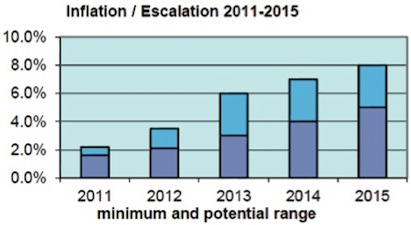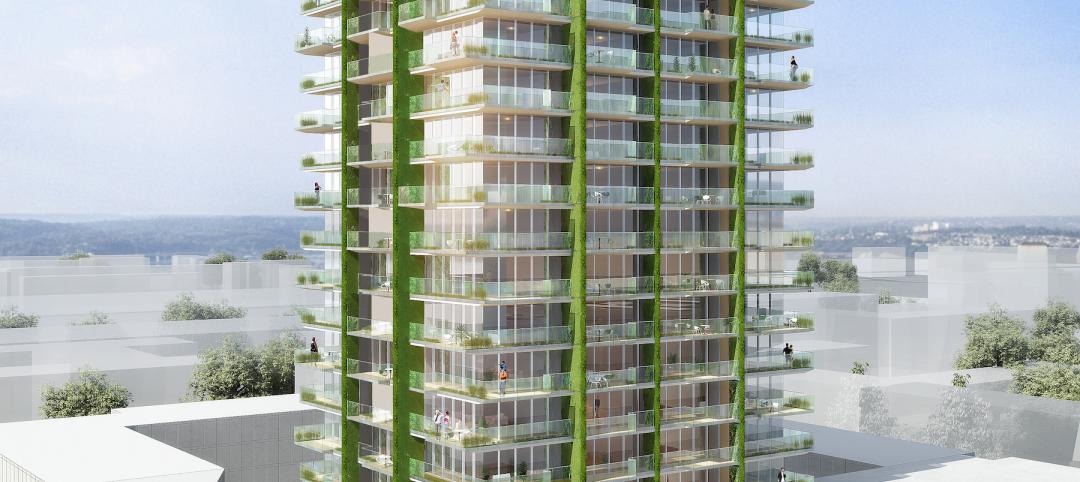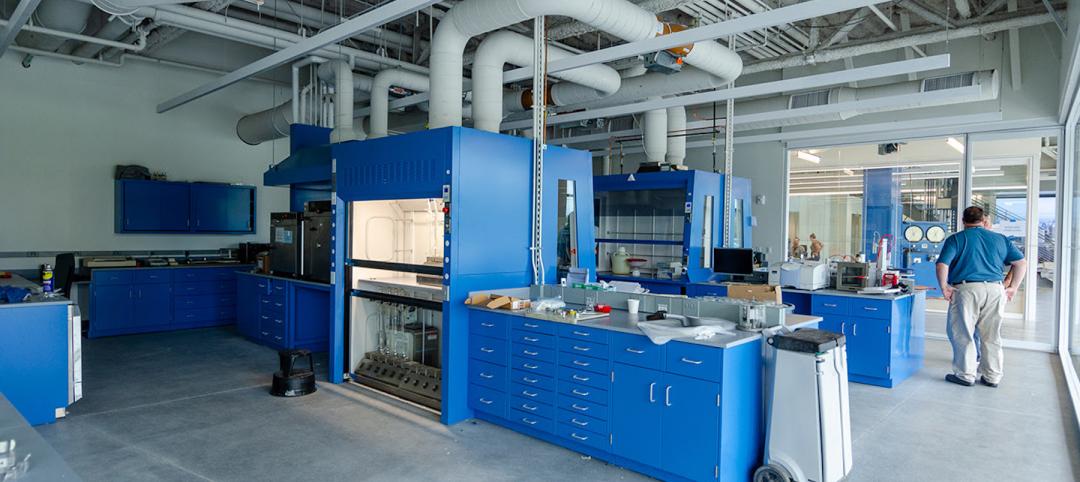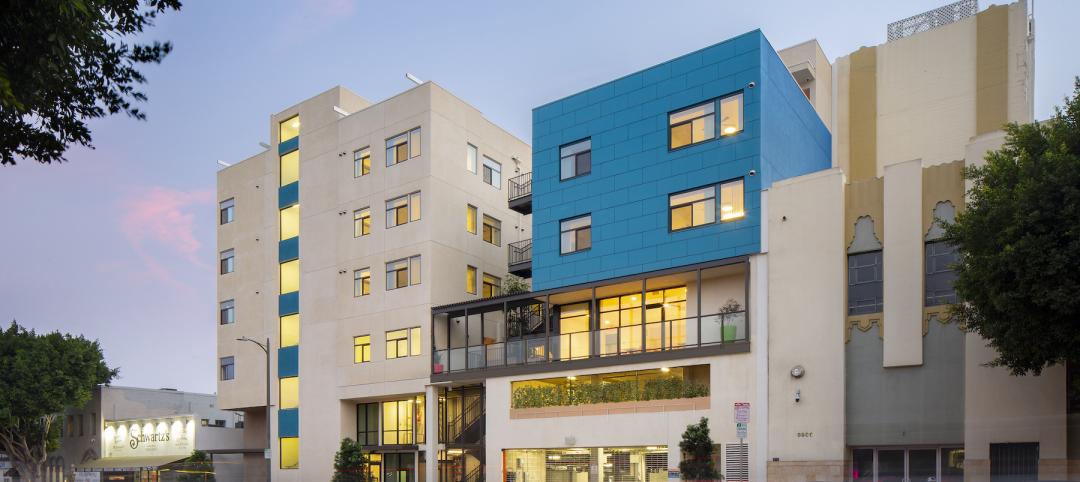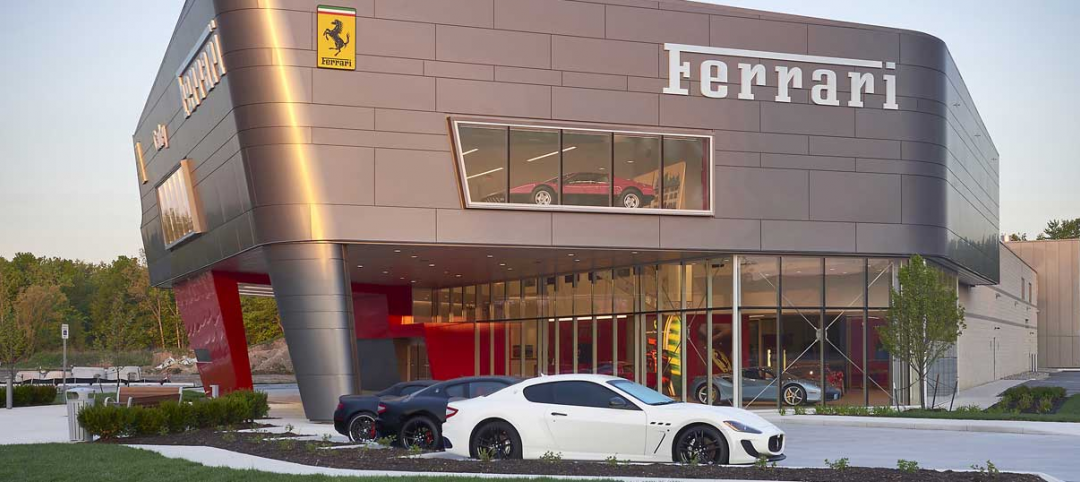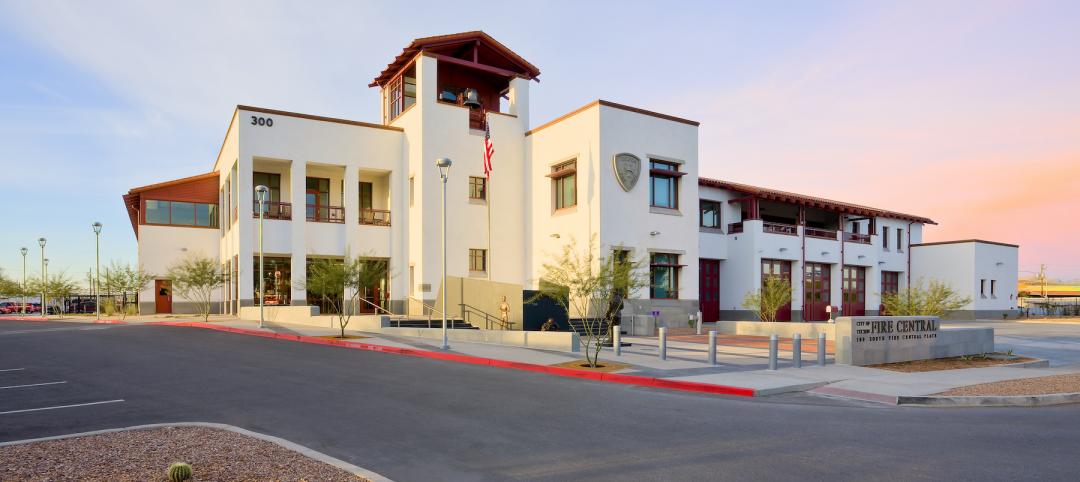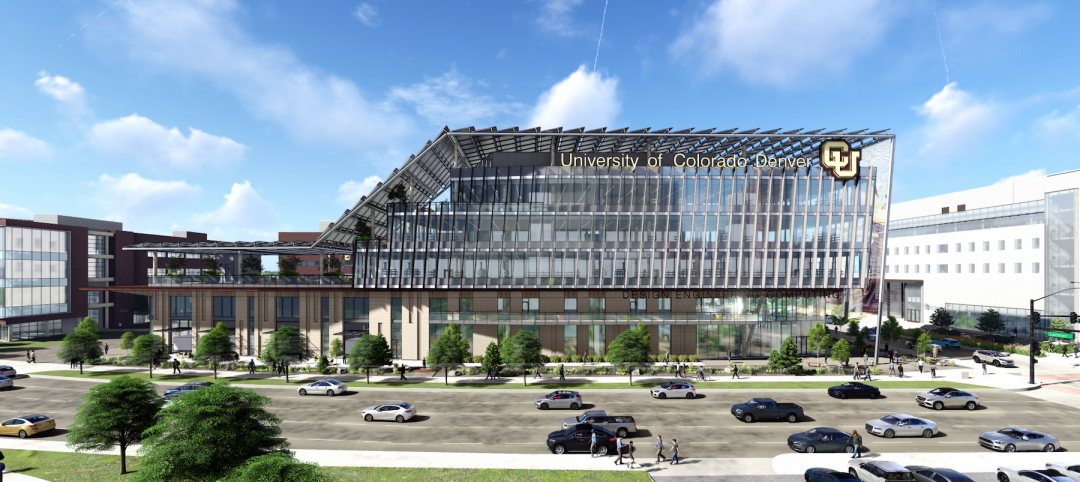??Construction growth is looking up, according to the Winter 2013 release of the periodic report Construction Economics, authored by Gilbane Building Company. Construction spending for 2013 will finish the year 5% higher than 2012. All of the growth will be attributed to residential construction. However, the Dodge Momentum Index, a leading indicator, is up more than 20% since January 2013, indicating growth in 2014. ??
The Architecture Billings Index (ABI) dropped below 50 in April, briefly indicating declining workload. Through September, we’ve seen five more months of growth, a good leading indicator for future new construction work. In October we’ve just had another drop, but not below 50, indicating slower gains rather than declines.
??ENR published selling price data for 2013 that shows contractors adding to their margins.
Some economic factors are still negative:
- ??The monthly rate of spending for nonbuilding infrastructure may climb from September through January, but then may decline by 10% through 2014. ??An anticipated decline in spending from February to May 2014 is influenced only mildly by a slight dip in nonresidential buildings and a flattening in residential but is influenced strongly by a steep decline in nonbuilding infrastructure spending.
- ??The construction workforce is still 25% below the peak. It will take a minimum of four more years to return to peak levels.
- ??As workload expands in the next few years, a shortage of available skilled workers may have a detrimental effect on cost, productivity, and the ability to readily increase construction volume.
Impact of recent events:
- ??FMI’s Third Quarter 2013 Construction Outlook Report mentions a few reasons why spending is not rapidly increasing: the decline in public construction as sequestration continues; lenders are still tight with lending criteria and consumers are still cautious about increasing debt load, and that includes the consumers’share of public debt.
- ??Comments regarding the outlook for economic stimulus have recently caused interest rates to increase rapidly. Lending criteria is still tight and borrowers are cautious about taking on new debt. Rates will continue to rise and borrowing costs will add potential cost to future funding of projects. The cheapest time to build is now behind us.
- ??Construction jobs growth has slowed. Jobs grew by 90,000 in the first half of 2013, but have grown by only 33,000 since June.
The impacts of growth:
- ??Construction spending during the first five months of 2013 declined from the rate of spending in Q4 2012. Growth has been inconsistent, even in the booming residential sector, which has seen recent declines. We see more consistent growth in 2014 for buildings.
- ??As spending continues to increase, contractors gain more ability to pass along costs and increase margins. The growth in contractor margins slowed since last year. However, expected increases in volume should reverse that in 2014.
- ??ENR’s Third Quarter 2013 Cost Report shows general purpose and material cost indices up on average about 2% to 2.5% year over year. However, selling price indices are up on average 4%. The difference between these indices is increased margins.
Supported by overall positive growth trends for the year 2013, expect margins and overall escalation to climb more rapidly than we have seen in five years.
Nonresidential buildings construction slowed in the first five months but is expected to increase substantially in the last few months of 2013. We will see a decline in nonbuilding infrastructure extend completely through 2014. Residential work will remain extremely active. Once growth in nonresidential construction picks up, and both residential and nonresidential are active, we will begin to see more significant labor shortages and productivity losses. Margins regained a positive footing in 2012 and extended those gains in 2013. Expect margins to grow stronger in 2014. Even moderate growth in activity will allow contractors to pass along more material costs and increase margins. When activity picks up in all sectors, escalation will begin to advance rapidly.
Click here for the full report.
About Gilbane
Gilbane Inc. is a full service construction and real estate development company, composed of Gilbane Building Company and Gilbane Development Company. The company (www.gilbaneco.com) is one of the nation’s largest construction and program managers providing a full slate of facilities related services for clients in education, healthcare, life sciences, mission critical, corporate, sports and recreation, criminal justice, public and aviation markets. Gilbane has more than 50 offices worldwide, with its corporate office located in Providence, Rhode Island. The information in this report is not specific to any one region.
Author Ed Zarenski, a 40-year construction veteran and a member of the Gilbane team for more than 33 years, is an Estimating Executive who has managed multimillion dollar project budgeting, owner capital plan cost control, value engineering and life cycle cost analysis. He compiles economic information and provides data analysis and opinion for this quarterly report.
Related Stories
Multifamily Housing | Apr 20, 2022
A Frankfurt tower gives residents greenery-framed views
In Frankfurt, Germany, the 27-floor EDEN tower boasts an exterior “living wall system”: 186,000 plants that cover about 20 percent of the building’s facade.
AEC Tech | Apr 19, 2022
VDC maturity and the key to driving better, more predictable outcomes
While more stakeholders across the AEC value chain embrace the concept of virtual design and construction, what is driving the vastly different results that organizations achieve? The answer lies within an assessment of VDC maturity.
Healthcare Facilities | Apr 19, 2022
6 trends to watch in healthcare design
As the healthcare landscape continues to evolve, IMEG’s healthcare leaders from across the country are seeing several emerging trends that are poised to have wide-ranging impacts on facility design and construction. Following are six of the trends and strategies they expect to become more commonplace in 2022 and the years to come.
Energy-Efficient Design | Apr 19, 2022
A prefab second skin can make old apartments net zero
A German startup is offering a new way for old buildings to potentially reach net-zero status: adding a prefabricated second skin.
Concrete Technology | Apr 19, 2022
SGH’s Applied Science & Research Center achieves ISO 17025 accreditation for concrete testing procedures
Simpson Gumpertz & Heger’s (SGH) Applied Science & Research Center recently received ISO/IEC17025 accreditation from the American Association for Laboratory Accreditation (A2LA) for several concrete testing methods.
Senior Living Design | Apr 19, 2022
Affordable housing for L.A. veterans and low-income seniors built on former parking lot site
The Howard and Irene Levine Senior Community, designed by KFA Architecture for Mercy Housing of California, provides badly needed housing for Los Angeles veterans and low-income seniors
Sponsored | BD+C University Course | Apr 19, 2022
Multi-story building systems and selection criteria
This course outlines the attributes, functions, benefits, limits, and acoustic qualities of composite deck slabs. It reviews the three primary types of composite systems that represent the full range of long-span composite floor systems and examines the criteria for their selection, design, and engineering.
Building Team | Apr 18, 2022
Shive-Hattery Acquires WSM Architects
Shive-Hattery announces that it has acquired WSM Architects, Inc., a 13-person architecture firm in Tucson, Arizona.
University Buildings | Apr 18, 2022
SmithGroup to design new Univ. of Colorado Denver engineering, design, computing building
The University of Colorado Denver selected SmithGroup to design a new engineering, design, and computing building that will serve as anchor of new downtown innovation district.
Building Team | Apr 15, 2022
Frank Gehry to design his largest building yet for his hometown of Toronto
Famed architect Frank Gehry will design his largest building to date for his hometown of Toronto, Canada.


